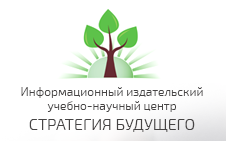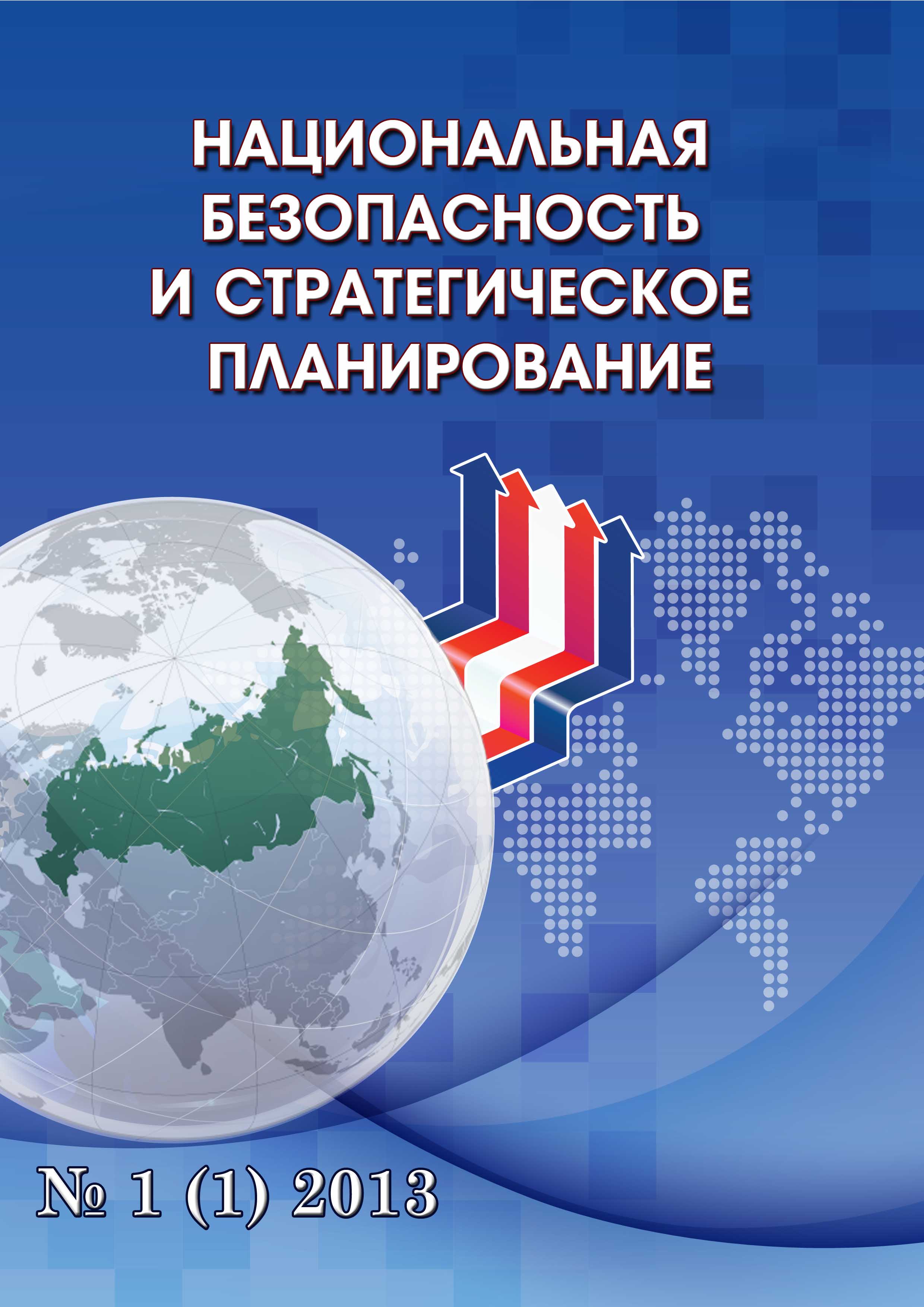Russian Federation
UDC 327
UDC 004
The article discusses the goals of creation, tasks and features of the functioning of analytical centers, their place in the political and economic systems of various levels. Typical organizational units with the functions of accumulation, systematization, analysis, processing, translation of knowledge within knowledge management systems are in the scope of this research. The problems of perception of the goals, objectives and capabilities of such structural units, which give rise to the erroneous attribution of them with the qualities inherent in independent observers, are identified. The already known problems of classification and impact assessment of think tanks are also considered. As an attempt to improve the classification, in order to illustrate the belonging of the names of structural units to the same domain of terms, general classification features are defined. The said features characterize the impact that is the result of the functioning of the structural unit. The possible types of impacts exerted by such structural units in the process of functioning are studied. Particular attention is paid to the influences that create the threat of introducing alien ideas into political systems under the guise of objective expert opinions through covert lobbying of the interests of economic or political structures.
think tank, analytical centre, centre of excellence, competence centre, crowdsourcing
1. Atlas of Analytical Centers of the EAEU: a reference book / Ed. A.V. Kuznetsova; INION RAS, Center for Interdisciplinary Research. Moscow: INION RAN, 2021. - 206 p. ISBN 978-5-248-01010-3
2. Özgür H., Kulaç O. An Analysis of the Studies on Think Tanks Success and Ranking // European Scientific Journal. - 2015. - Vol. 2. - pp. 73-90.
3. Andreev S. Rating of thought factories: problems of methodology / Russian International Affairs Council [Electronic resource] URL: https://russiancouncil.ru/analytics-and-comments/analytics/reyting-fabrik-mysli-problemy-metodologii/ (date of access 07.01.2022)
4. Köllner P. Think Tanks: The Quest to Define and to Rank Them. - GIGA Focus International Edition English, 2013. Issue 10.
5. Methods and technologies for the activities of foreign and Russian research centers, as well as research structures and universities that receive funding from foreign sources: analysis and generalization [Text]. - M.: Russian Institute for Strategic Studies, 2014. - 97 p.
6. Zulkharneev A.F. What should Russian think tanks be like? / Russian International Affairs Council [Electronic resource] URL: https://russiancouncil.ru/analytics-and-comments/columns/global-governance/kakimi-dolzhny-byt-rossiyskie-fabriki-mysli/?sphrase_id=91141050 (date of access 01.07.2022)
7. Kickbusch I, Hanefeld J. Role for academic institutions and think tanks in speeding progress on sustainable development goals // BMJ. - 2017. - Vol. 358. DOI https://doi.org/10.1136/bmj.j3519
8. Ivchenkova M.S. The functioning of Russian "think tanks" in the information society // Bulletin of the Institute of Sociology. - 2019. - V. 10. - No 3. - pp. 151-164. - DOIhttps://doi.org/10.19181/vis.2019.30.3.594. - EDN QPJSXI.
9. Cornell E. Internal Think Tanks for Innovation and Team-Building // Proceedings of the 2016 ACM SIGUCCS Annual Conference, 2016. Denver, Colorado, USA: Association for Computing Machinery, 2016. - pp. 7-10.
10. Karulin V.P. On the issue of determining the content and structure of scientific competencies of state scientific centers of the Russian Federation / V.P. Karulin, Yu.A. Sytnyak, Yu.V. Alyaeva // Proceedings of the Institute of Engineering Physics. - 2021. - No 3(61). - pp. 94-99. - EDN SUMMAM.
11. Khodatenko E.N. Center of Competence in the Field of Robotics EMERCOM of Russia / E.N. Khodatenko, A.Yu. Barannik // Civil Security Technologies. - 2021. - Vol. 18. - No 2(68). - pp. 63-66. - DOIhttps://doi.org/10.54234/CST.19968493.2021.18.2.68.11.63. - EDN OARFFZ.
12. Rakhmilevich E.G. Organization of activities of industry centers of competence / E.G. Rakhmilevich, E.S. Yurtsev, V.V. Yatsenko // Innovations in Management. - 2021. - No 4(30). - pp. 68-75. - EDN IDUXWX.
13. Ochirova T.Ch. Activities of competence centers in the field of agricultural cooperation and support of farmers // Scientific electronic journal Meridian. - 2020. - No 1(35). - pp. 318-320. - EDN AZUZHS.
14. Tyurina G.A. Branch center of competences on the basis of the college as a factor of continuing professional education / G.A. Tyurina, O.V. Kartavenko // Forecasting the Professional Future of Youth in the Digital Economy: Proceedings of the All-Russian Scientific and Practical Conference, Pervouralsk, March 12, 2020 / Edited by E.F. Zeera, V.S. Tretyakova. - Pervouralsk: Russian State Vocational Pedagogical University, 2020. - pp. 155-158. - EDN MERENG.
15. Sudorgina L.V. Model "TAKE AND DO": high-tech polygon as a center of competencies for technological education / L.V. Sudorgin, E.V. Ermolovich // Bulletin of Pedagogical Innovations. - 2020. - No 1(57). - pp. 100-105. - EDN XFVOHF.
16. Adova I.B. Competence centers as a modern organizational form for improving the professional competence of personnel / I.B. Adova, M.V. Simonova // VIII Economic readings: Proceedings of the scientific and practical conference dedicated to the 110th anniversary of economic education in Siberia and the 45th anniversary of the Faculty of Economics of TSU, Tomsk, November 21-22, 2008 / Managing editor G.S. Belskaya. - Tomsk: Publishing house of scientific and technical literature, 2009. - pp. 264-268. - EDN YLSFHN.
17. Mayantseva O.V. The use of information systems for the formation of courses for centers of competence // Problems of improving the organization of production and management of industrial enterprises: Interuniversity collection of scientific papers. - 2011. - No 1. - pp. 124-130. - EDN RENYVZ.
18. Bubnova N.I. "Think tanks" as an actor in modern politics // Comparative Politics. - 2017. - V. 8. - No 3. - pp. 8-19. - DOIhttps://doi.org/10.18611/2221-3279-2017-8-3-8-19. - EDN ZHOLNJ.
19. Bloom W. Killing Democracy: CIA and Pentagon Operations during the Cold War / Per. from English. under the hand A. Chernov and E. Loginova; translation editor V. Krasheninnikov. - 2nd ed. - M .: ANO "Institute for Foreign Policy Research and Initiatives", Kuchkovo Pole, 2014. - 704 p.
20. Savage G. Think tanks, education and elite policy actors // Australian Educational Researcher. - 2015. - Vol. 43. - pp. 35-53.
21. Javed S., Syed J. Think tank Organizations: a knowledge bridge connecting state and society // BAM2016 Conference Proceedings, 2016. - 8 pp.
22. Yakovlev A.A. Sector of economic analytics in Russia: evolution and development prospects / A.A. Yakovlev, L.M. Freinkman, A.V. Zolotov // Questions of Economics. - 2015. - No 8. - pp. 73-98. - EDN UDDLAH.
23. Mikhailov A.S. Geography of knowledge: clustering of national competence centers in Russia / A.S. Mikhailov, A.A. Mikhailova, D.V. Khvalei // Bulletin of the Baltic Federal University. I. Kant. Series: Natural and medical sciences. - 2020. - No 1. - pp. 5-17. - EDN BTGDBQ.
24. Gurtov V.A. Competence centers in the field of Arctic research: analysis based on dissertations / V.A. Gurtov, A.V. Stasevich // Arctic and North. - 2020. - No 38. - pp. 6-20. - DOIhttps://doi.org/10.37482/issn2221-2698.2020.38.6. - EDN PCIXZR.
25. Atanasov P., Witkowski J., Mellers B., Tetlock P.. Crowd Prediction Systems: Markets, Polls, and Elite Forecasters // Proceedings of the 23rd ACM Conference on Economics and Computation. - 2022. - pp. 1013-1014.






